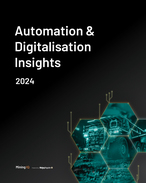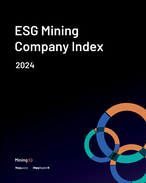This article is 5 years old. Images might not display.
TSM is an increasingly internationally recognised standard for responsible mining. IBRAM joins six other mining associations around the world in adopting TSM, and is the second in Latin America to do so. The other countries that have adopted the initiative are Finland, Argentina, Botswana, the Philippines and Spain.
MAC freely shares TSM with other countries seeking tools to improve the environmental and social performance of their mining industries, including tailings management, engagement with civil society and enhanced transparency and accountability. IBRAM, with MAC's support, will tailor TSM's performance areas to reflect the unique aspects of its domestic mining sector and commits to TSM implementation over the next five years.
According to Flávio Ottoni Penido, president of IBRAM, TSM is a necessary response by Brazil's mining sector after the tragic tailings dam failures in Brazil in the past few years. TSM is recognised by many international experts to include international best practices in tailings management, safety and health and other priority areas.
Penido said: "By adopting TSM, we are committing to raise the standards of our industry. TSM will help our mining sector become more transparent, earn the confidence of Brazilian society and achieve its full potential."
Pierre Gratton, president and CEO of MAC, commented: "We are honoured that Brazil has chosen TSM as the vehicle to drive environmental and social performance in its mining sector and are proud of TSM's increasingly global reach. TSM adherents now include mining associations in seven countries on five continents. The addition of IBRAM and Brazil's large mining sector firmly establishes the TSM initiative as a leading global mining standard."
MAC and its members launched TSM in 2004. Implementation of the programme is mandatory for all MAC members' Canadian operations, but many voluntarily apply it to their international sites.
TSM requires mining companies to annually assess their facilities' performance across eight important areas, including tailings management, Aboriginal and community outreach, safety and health, and biodiversity conservation. The results are freely available to the public and are externally-verified every three years to ensure what has been reported is accurate.
To ensure TSM reflects the expectations of civil society and industry stakeholders, it was designed and continues to be shaped by an independent, multi-interest advisory panel. As part of its implementation, IBRAM will implement a similar advisory body to provide this valuable oversight function.
























